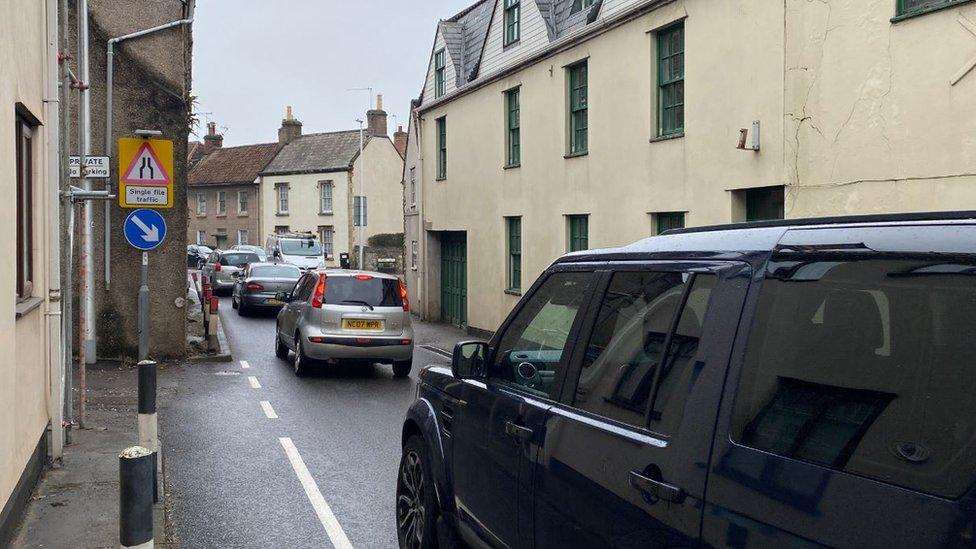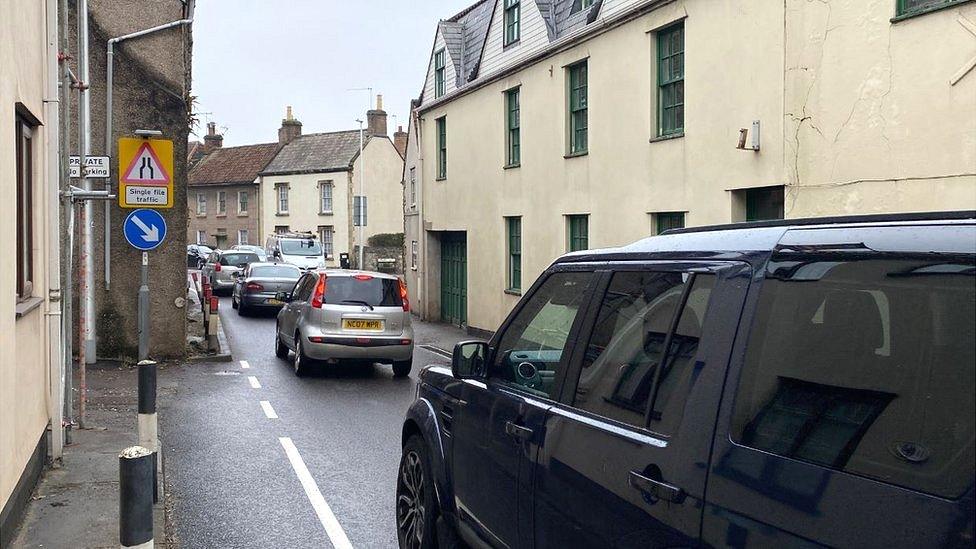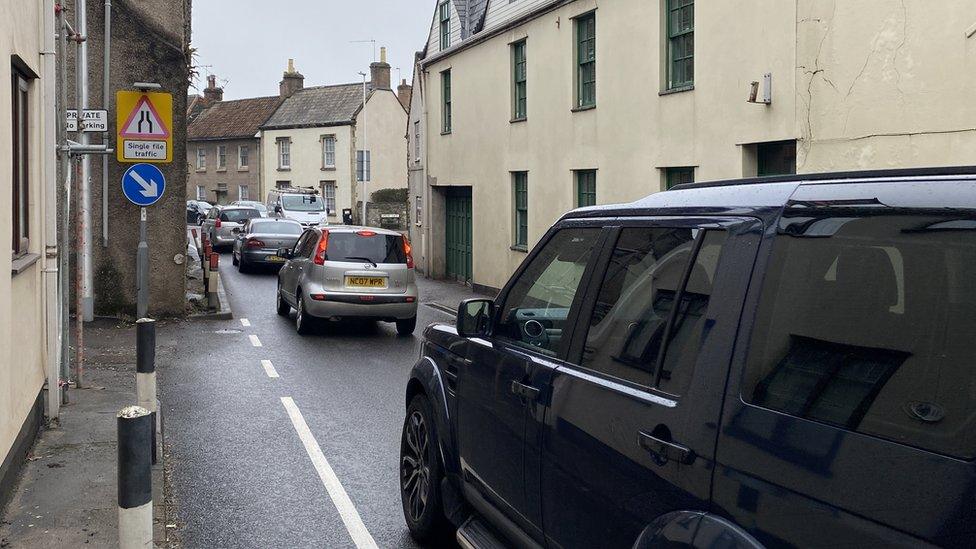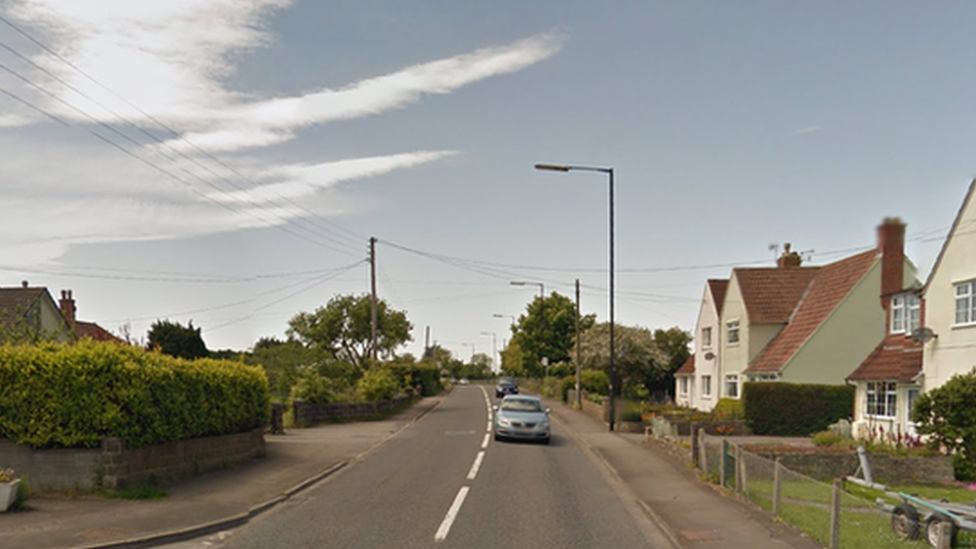Banwell bypass could take most traffic out of busy village
- Published

Congestion in Banwell as road traffic goes through a stretch of road called "the narrows"
Traffic in Banwell could be reduced by three-quarters if a bypass is built, but it could increase in other villages nearby, a public inquiry has heard.
Plans to build a bypass around the village are expected to reduce traffic by 78% in its opening year.
But the scheme will result in an increase in traffic flows through Churchill, Winscombe, and Sandford.
The inquiry has now formally closed and a report will be sent to Secretary of State for a final decision.
Speaking on behalf of North Somerset Council on the final day of the inquiry on Thursday, Andrew Tait KC, said: "Although the scheme will result in an increase in traffic flows through Churchill, Winscombe, and Sandford in the opening year, these increases are considerably less than the reductions in flow delivered in Banwell and these villages are not subject to the same constraints.
"Importantly, a series of mitigation measures has been proposed in those neighbouring villages to increase capacity, improve safety, and sufficiently mitigate the impact of the scheme."
Two A-roads meet in Banwell where roads narrow and at one point are only wide enough for cars to travel in one direction.
'Cluster of collisions'
Mr Tait said this caused "chronic environmental problems" and had led to a "cluster of collisions", according to the Local Democracy Reporting Service.
The public inquiry has been running for three weeks and concerns the council's attempts to secure compulsory purchase orders to force landowners to sell land needed for the scheme.
Mr Tait said: "The minimum land necessary to deliver the scheme has been sought, further reduced where possible by the proposed modifications and there has been full, extensive, and continuing attempts to negotiate with landowners and the many instances of agreement and withdrawal of objections by landowners illustrates that well.
"The interference with human rights that will be caused by the scheme is justified and proportionate, especially having regard to the availability of compensation."
He said that three objections had been withdrawn by the first day of the inquiry and by day seven, the final day, 19 had been withdrawn.
Mr Tait said that 39 objections remain, but he added that he expected five to be withdrawn "imminently".
He said that no objection had disputed the need to tackle Banwell's traffic issues and no environmental bodies had objected to the scheme.
Planning inspector Joanne Burston, who ran the inquiry, will report to the Secretary of State who will make the final decision on whether the council can use its compulsory purchase powers to acquire the land.

Follow BBC West on Facebook, external, Twitter, external and Instagram, external. Send your story ideas to: bristol@bbc.co.uk , external
Related topics
- Published14 July 2023

- Published16 March 2023

- Published30 December 2022
